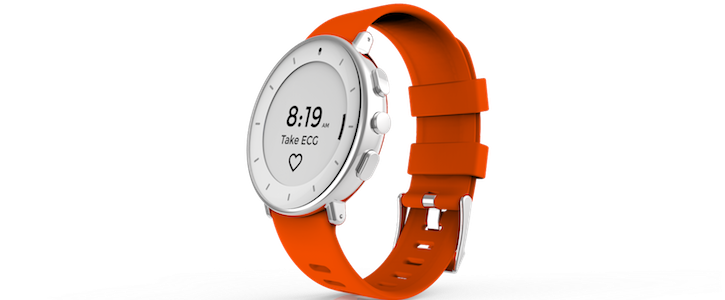Verily's Smartwatch ECG Reader Gets FDA Clearance, Upping Alphabet's Wearables Game
The wearables competition between Google’s sister company and Apple just got more interesting.

Verily — Alphabet’s life-sciences health-tech company and a sister to Google — has received U.S. Food and Drug Administration (FDA) clearance for an electrocardiogram (ECG) reader for the prescription-only Verily Study Watch.
The FDA go-ahead comes little more than a month after Apple debuted its Apple Watch 4, which also features a built-in ECG reader. Although the Verily Study Watch is an investigational tool for use by participants of clinical research projects, the ECG reader raises questions about the direction in which the Google empire plans to take its wearables efforts and whether it will further butt heads with Apple.
>> READ: J&J Studying How Its App, Apple Watch Can Detect A-Fib Earlier
Beyond the Silicon Valley tension, however, are fascinating implications for clinical research and healthcare. Smartwatches with ECG readers track biological data in real time, potentially helping investigators and providers better understand their participants and patients.
“The ability to take an on-demand, single-lead ECG can support both population-based research and an individual’s clinical care,” Michael V. McConnell, M.D., Verily’s head of cardiovascular health innovations, wrote in a blog post announcing the FDA clearance.
“Together, we are working towards a future where we can use devices, like the FDA-cleared Study Watch, to inform real-world, personalized care decisions and help us move to proactive healthcare,” he added.
The Verily Study Watch can record, store, transfer and display ECG rhythms.
It received 510(k) clearance as a Class II medical device — available only through prescription, intended for use by healthcare providers and adult patients with “known or suspected heart conditions” and “health-conscious individuals.”
The Verily Study Watch has been used in several research projects, including Project Baseline, Aurora, Personalized Parkinson’s Project and Parkinson’s Progression Makers Initiative.
Verily also uses genomic, proteomic, traditional clinical and other types of data in its work. McConnell noted that his team hopes to understand how mobile health data may improve healthcare and interactions between physicians and patients.
Get the best insights in healthcare analytics directly to your inbox.
Related
A Smartwatch Might Have Saved My Dad’s Life
Apple Unveils Health-Heavy Smartwatch with EKG Reader